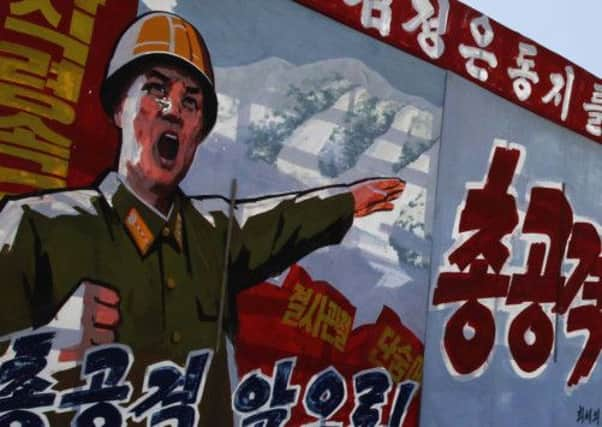North Korea: Uphill struggle to finish ski resort


The complex of ski runs and resort chalets will formally open on Thursday, though late last month the main hotels appeared to be little more than shells, potholes filled the access roads and foundations were still being dug for other buildings.
The main question remains: who will ski here?
Perhaps supreme leader Kim Jong-un, who reportedly enjoyed the sport as a teenager studying in Switzerland. But by the estimate of the secretary-general of North Korea’s ski association, Kim Tae-yong, there are only about 5,500 North Korean skiers in a country of 24 million.
Advertisement
Hide AdAdvertisement
Hide AdEven so, as he sweeps his hand over the scene, Mr Kim displays no doubt that what his country really needs right now is a luxury ski resort in the secluded depths of North Korea’s east coast. He bristles at the suggestion Masik will be a playground for the nation’s elite and a trickle of eccentric tourists.
The narrow road to Masik Pass winds through rugged mountain terrain, small farming hamlets and lush foliage. As the road turns to dirt, brightly coloured propaganda posters and ubiquitous slogans in blood-red letters come into view, followed by rows of barracks for workers.
Beyond that, hundreds, if not thousands, of soldier-builders – “shock brigades” assigned to especially urgent and difficult tasks – move on the slopes. Some, carrying blocks of concrete, look like they are barely teenagers. Other workers bash at the stone with hammers. Young women march with shovels over their shoulders. Vans equipped with loudspeakers blast out patriotic music.
Masik’s ski runs – at the moment long stretches of bright-brown dirt dotted with rocks, weeds and patches of stubborn grass – cut their way through the trees to converge at the hotel construction site below. Though two simple lifts have been installed, neither was working during a recent visit by journalists.
Outside the North Korean bubble, most of the world’s attention has been on how the country’s leader has pushed ahead with his late father’s strategy of establishing North Korea as a nuclear state, no matter the cost in lost trade and international sanctions. But internally, it is not forgotten that he has said improving the economy is as important as nuclear weapons development.
Mr Kim and his advisers have vowed repeatedly to lift North Korea’s standard of living, which is among the world’s lowest.
They have focused on boosting tourism, providing the impoverished country with the accoutrements of a “civilised” nation and, most visibly, encouraging a broader interest in sport. The development of Masik Pass meets all three policy goals.
The resort won’t be finished by Thursday; according to Kim Tae Yong, the ski association chief, who said much of it will be built in phase two.
His only concern is the ski lifts.
Advertisement
Hide AdAdvertisement
Hide AdLast month, the Swiss government nixed plans for a company to sell North Korea of lifts and cable car equipment because of new sanctions barring the sale of luxury goods to the North. Austrian and French ski-lift manufacturers also have reportedly said no.